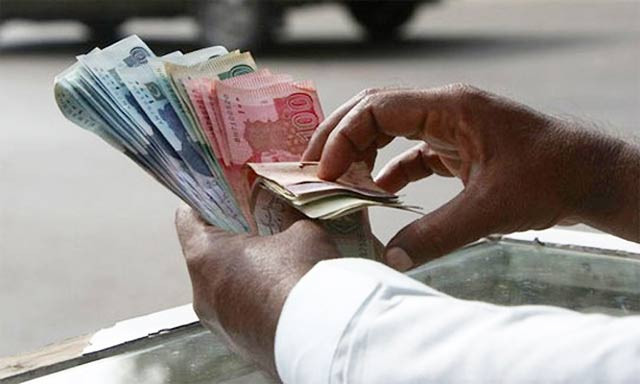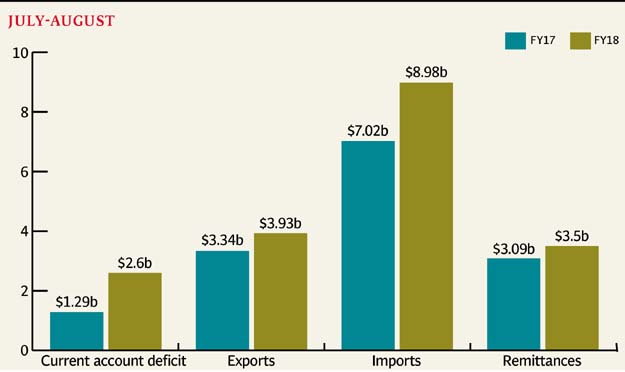Current account deficit widens 102%, goes up to $2.6b
Pakistan posted higher-than-expected deficit of $12.1b in FY17

PHOTO: REUTERS
Pakistan already posted a much higher-than-expected deficit of $12.1 billion (4% of gross domestic product - GDP) in the previous fiscal year ended June 30, 2017.
Current account deficit widens 210%, stands at $2.05b
With the difference between exports and imports being the biggest determinant of the current account balance, a deficit or surplus reflects whether a country is a net borrower or net lender with respect to the rest of the world.
The enormous increase in deficit suggests that the government has been unable to manage its balance of payments position over the medium and long run.
Analysts say some of the measures the government could take immediately include rupee devaluation, levy of regulatory duty on non-essential imports, export promotion, floating dollar bonds and bilateral borrowing.

In the current scenario of falling foreign currency reserves, the government may go for monetary tightening in the next few months.
As a percentage of GDP, the deficit rose to 4.6% in the first two months of FY18 as opposed to just 2.5% in the same period of the previous year.
In the first two months of FY18, Pakistan exported goods worth $3.93 billion compared to exports valuing $3.34 billion in the same period of last year, reflecting a reasonable year-on-year increase of 18%.
However, imports jumped much faster to $8.98 billion as opposed to $7.02 billion in the corresponding period of last year, up 28%. Balance of trade in both goods and services in the first two months of FY18 was negative $6.03 billion compared with a deficit of $4.35 billion in the same period of previous year.
Worker remittances amounted to $3.5 billion in the first two months of fiscal year 2018, up 13.2% from the same period of previous year, when they totalled $3.09 billion.
Remittances make up almost half of the import bill of Pakistan and cover the deficit in the trade of goods account.
Current account deficit widens 178%, stands at $8.93b
Pakistan is also facing low levels of foreign direct investment (FDI) in recent years.
In fiscal year ended on June 30 2017, FDI increased just 5% to $2.41 billion compared to $2.30 billion in the previous year.
According to the Board of Investment, Pakistan received a record high FDI of $5.4 billion in fiscal year 2008, but since then the country has been struggling to touch even half of that milestone.
Published in The Express Tribune, September 20th, 2017.
Like Business on Facebook, follow @TribuneBiz on Twitter to stay informed and join in the conversation.



















COMMENTS
Comments are moderated and generally will be posted if they are on-topic and not abusive.
For more information, please see our Comments FAQ